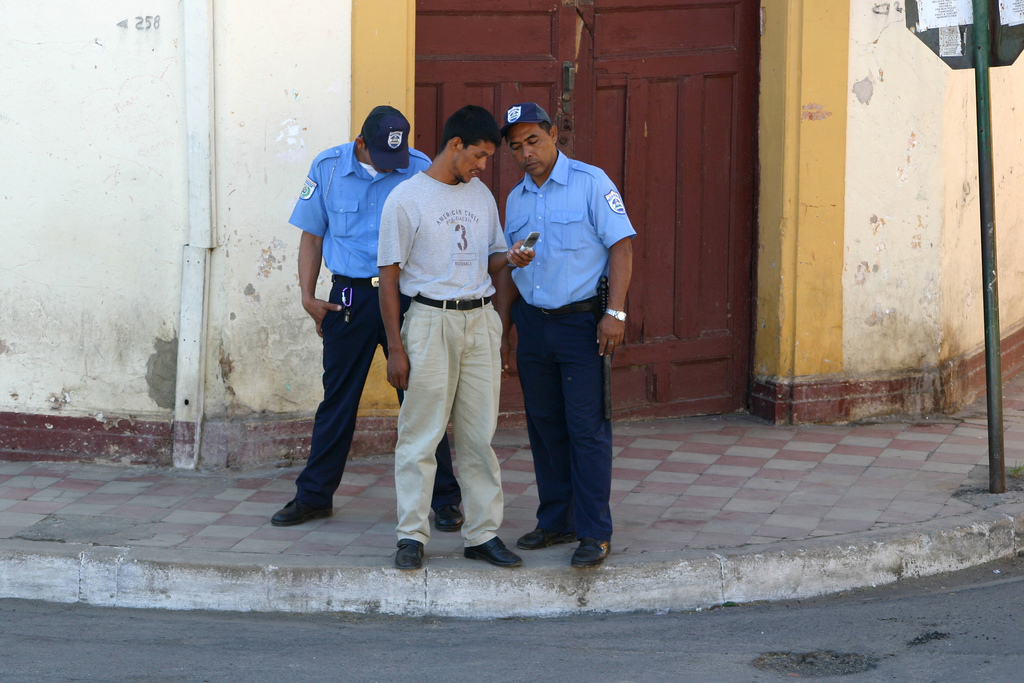ICTs and human security in situations of conflict and chronic violence
4
minute read
 Image Credit: © Alex Barth. Used under CC BY 2.0 License.
Image Credit: © Alex Barth. Used under CC BY 2.0 License.
Statement 1: “Technology makes people safer.”
Statement 2: “Technology makes people more insecure.”
These two opposing philosophies are subject to continuing debate among researchers, politicians, and communities of practice. The relationship between ICTs and security receives widespread attention in two, apparently contradictory categories: on one hand, arguing that policing of communities via surveillance information has made them more insecure; and on the other, pointing to the variety of ways that communities use ICTs to deal with stresses and shocks to make themselves safer. Here at SIMLab, we argue that the issues around ICTs and human security are perhaps a bit more complex than that. The contexts, vulnerability, and types of insecurities experienced by different population groups vary greatly, and mean that neither point of view can be completely correct - and that at times, both can be valid.
The risks related to ICT usage by communities in conflict and chronic violence settings, where contexts and situations are constantly evolving, are a moving target. International and national stakeholders continue to overlook the ways in which communities use ICTs to cope with, remedy, and mitigate risks during situations of active conflict or protracted violence, using accessible technologies such as mobile phones - text messaging, Facebook, and Whatsapp among other apps and features to mitigate security risks or cope with insecurity. An example that has excited some surprise in recent reporting is that of Syrian refugees staying up to date on preferred routes on long journeys using WhatsApp. However, a more nuanced picture includes a reminder that many of these refugees have advantages relative to other people who remain in their countries of origin, with some education, money to pay for a journey, a plan and an understanding of where to go and what to do – perhaps to cross into a Schengen region (European countries with no border controls) and eventually into Germany. Contrast this with South Sudanese women, who walk for days, children in hand, with very little across a border to a refugee camp – who may own a simple mobile phone, but are less likely to be literate or have disposable income for airtime and data. The two examples are not directly comparable in many ways, but illustrate the many variables that influence the use and utility of ICTs.
To begin to explore this question – how do individuals and communities utilize available communication technologies and what are their shortcomings? - SIMLab is supporting a five-year consortium project, led by the Norwegian University of Life Sciences (NMBU) and funded by the European Commission, to look at community policing and human security. The consortium’s operational research will focus on listening to what communities have to say about their tactics and strategies around human security for both online and offline technologies, and supporting our research partners to consider inclusive technologies in their examination of community policing issues. In many of the study countries, surveillance of communities by the police is seen with high levels of distrust, in many cases due to increased violence and corruption by the police. Technology solutions such as reporting violence through SMS have seen varying degrees of success, and often remain in pilot stages. These solutions are rarely viewed in a holistic lens incorporating the broader cultural, communication, and technological contexts and trends. Furthermore, these solutions often fail to incorporate the specific preferences or socio-economic forces that exist for vulnerable sub-group populations they intend to target (e.g. willingness to pay for a text versus a phone call to reporting a crime they have witnessed).
SIMLab will be looking at the full range of complex issues here - for example, trying to understand the mobile infrastructure in active conflict areas, trust issues with using technology, sustainability, data security, data ethics, and inclusivity towards different vulnerable population sub-groups.
We will start by assessing the inclusive technology context, at country level and then in more detail relating to specific research goals, across four regions (11 countries in total) each of which has an active security situation:
- East Africa: South Sudan, Kenya, Somalia
- South Asia: Afghanistan, Pakistan
- Eastern/Southern Europe: Kosovo, Bosnia and Herzegovina, and Serbia
- Central America: El Salvador, Honduras, Nicaragua
Each country has a differing human security context – ranging from post-conflict (Afghanistan) to chronic violence (urban Central America). As a result the underlying technology infrastructure, access and systems differ as well. What we hope to extrapolate are a series of findings from each of the countries, and through comparative case studies, to draw out commonalities around ICT use and human security. Secondly we’ll draw on this research and support the design of two pilot projects advancing the ethical use of inclusive technologies for communities enduring conflict or violence.
There are significant challenges in understanding the security contexts in areas where the dynamics are constantly changing. We hope to start this process with getting to know the local actors and partners in each of these countries over the next few months in order to map the key issues and contexts for prospective fieldwork next year. We will post regular updates here, so watch this space for more!
If you are interested in discussing more with us about this work, contact us at hello@simlab.org